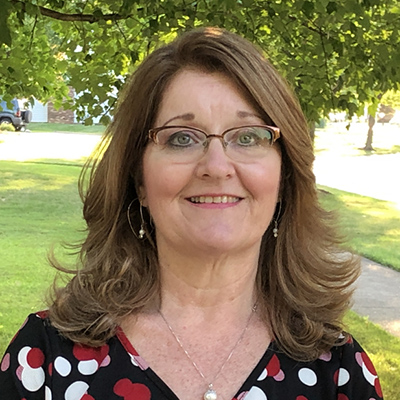
What to teach teens and young adults about money, bank accounts, credit cards and more
When kids are getting that first job, buying a car or heading off to college, it's a great time for them to learn "how to adult"

The daughter of a former co-worker once lost her ATM/debit card while away at college out of state. She called her mom to ask an urgent, serious question: “How do I get money out of my bank account if I don’t have my ATM card?”
Even though the young woman had her driver’s license, she had no idea she could walk into her bank branch and withdraw money with just her ID. She was a bright woman with parents who had taught her tons of life skills. They just never thought to explain that.
Most teenagers and young adults don’t know nearly as much as they should about money and how to manage all of the moving parts. If you have a high schooler or young adult in your life who’s starting that first job, buying that first car or going off to college, consider having conversations to teach them that it’s important to:
- Learn how checking accounts and savings accounts work, as well as checks, debit cards and credit cards. Here’s a good overview of the pros and cons of various payment methods, including through Venmo and other P2P apps.
- Be cautious with Venmo, CashApp, Zelle, PayPal and other P2P services. Once you send money with one of these, it’s not coming back. Don’t pay anyone who isn’t a close friend or relative.
- Never give out two-factor authentication codes that you get by text or email to anyone, no matter who they say they are or why they say you need to provide it.
- Learn how to apply for your first credit card or loan.
- Understand the importance of protecting your personal information: your Social Security number, your address, your phone number, your bank account information, etc. Don’t post personal information on social media.
- Recognize attempts to trick you or steal your information, such as through phishing emails and imposter phone calls and texts. Many people can be too trusting with information that can be used in ways that are dangerous.
- Understand what a credit report is and the importance of building a good credit record. It will help you buy a car, rent an apartment without a cosigner and qualify for a credit card.
- Know how to freeze your credit files to prevent thieves and bad actors from opening accounts without your authorization.
- Read what you sign and don’t sign anything you don’t read or understand. This includes checking boxes online that you agree to a company’s terms and conditions. You should read what you’re agreeing to. This is particularly important once young people turn 18 and their signature becomes legally binding. As an adult, if you agree to something in writing that will hurt you, failing to read and understand it before signing it is not a valid legal excuse.
- Learn what to pay attention to in a contract or any agreement, and know when to ask for help.
- Make saving money a priority if you have a job. Maybe you want a car, a new smartphone or a spring break trip. Whatever your financial goal is, almost no one makes all the money they need for any given expense at one time. And if you learn the discipline of saving early, that habit will serve you well for the rest of your life.
For tips on good information to teach children of all ages, from preschool and up, go to our Smart Money, Smart Kids guide.
Topics
Authors
Teresa Murray
Consumer Watchdog, U.S. PIRG Education Fund
Teresa directs the Consumer Watchdog office, which looks out for consumers’ health, safety and financial security. Previously, she worked as a journalist covering consumer issues and personal finance for two decades for Ohio’s largest daily newspaper. She received dozens of state and national journalism awards, including Best Columnist in Ohio, a National Headliner Award for coverage of the 2008-09 financial crisis, and a journalism public service award for exposing improper billing practices by Verizon that affected 15 million customers nationwide. Teresa and her husband live in Greater Cleveland and have two sons. She enjoys biking, house projects and music, and serves on her church missions team and stewardship board.
Find Out More

Food for Thought 2024

Safe At Home in 2024?

5 steps you can take to protect your privacy now
